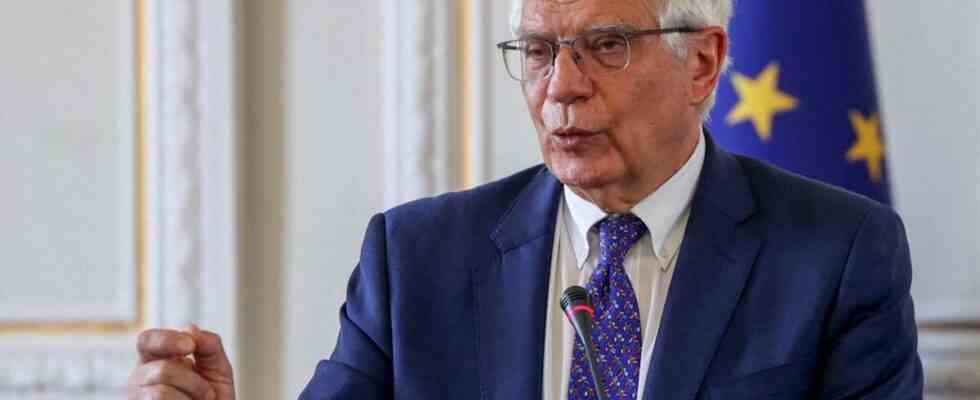The head of EU diplomacy, Josep Borrell, began, this Thursday, in Brussels, talks which promise to be difficult with the leaders of Serbia and Kosovo, after the renewed tensions caused by new administrative rules and borders denounced by Belgrade. “The recent tensions in northern Kosovo have once again shown that it is time to move towards a complete normalization of relations” between the two countries, a key condition for their accession to the EU, indicated Josep Borrell in a tweet, calling on leaders “to be open and flexible”.
Josep Borrell met Kosovar Prime Minister Albin Kurti, then Serbian President Aleksandar Vucic, before bringing them together around a table, as part of the Belgrade-Pristina Dialogue, piloted since 2011 by the European Commission. Invoking a principle of “reciprocity”, Pristina plans to impose temporary residence permits on people entering Kosovo with a Serbian identity card, and requires Kosovo Serbs to replace Serbian license plates in their vehicles by Kosovo plates.
120,000 Serbs live in Kosovo
These new measures led to a new episode of violence at the end of July in northern Kosovo, where the Serbian minority considers them vexatious. They must come into force on September 1 after a postponement by Pristina, under pressure from the United States. Belgrade has never recognized the independence proclaimed by Kosovo in 2008, a decade after a bloody war that left 13,000 dead, mostly Albanian Kosovars. Since then, the region has been the scene of episodic frictions. The approximately 120,000 Kosovo Serbs, a third of whom live in the north of the territory, do not recognize the authority of Pristina, remaining loyal to Belgrade.
After a meeting on Wednesday with NATO Secretary General Jens Stoltenberg, the Serbian president said he expected “difficult discussions”. “Although I continue to hope for some form of solution, I remain skeptical,” Aleksandar Vucic said on Twitter on Thursday. Jens Stoltenberg called on “all parties to show restraint and avoid violence”, warning that the NATO peacekeeping force in Kosovo (Kfor) was “ready to intervene if stability was threatened” and to reinforce its troops on the ground “if necessary”.
“Let’s go then! It will not be necessary,” commented Josep Borrell in this regard, welcoming Kosovar Prime Minister Alban Kurti. The latter had castigated the day before “illegal Serbian structures transformed into criminal gangs, which erect barricades” in the north of the country. Serbia and Kosovo aspire to join the EU: Belgrade has had official candidate status since 2012, while Kosovo is a “potential candidate”. Five EU countries refuse to recognize the independence of the former Serbian province.

